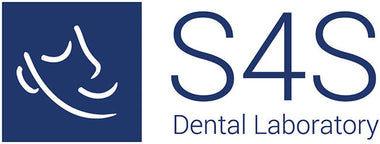PAIN IN JAW WHILE YAWNING? THIS COULD BE WHY
If you're experiencing jaw pain while yawning, it could be a sign of an underlying condition, such as bruxism or Temporomandibular Joint Disorder (TMD).
Both of these common dental issues affect the muscles and joints responsible for jaw movement, and they can lead to discomfort, difficulty opening your mouth wide, and even clicking or popping sounds in the jaw.
Understanding the causes of jaw pain while yawning and the treatment options available can help you address the problem and find relief.
What is bruxism and how does it cause jaw pain?
Bruxism is the medical term for teeth grinding or jaw clenching, usually during sleep.
This unconscious habit puts a significant amount of pressure on your jaw muscles and the temporomandibular joint (TMJ), often resulting in jaw pain, headaches, and tooth damage.
If you're experiencing pain in your jaw while yawning, bruxism could be to blame, especially if you also notice worn-down teeth or neck pain.
Bruxism is frequently linked to stress, anxiety, or misaligned teeth.
Misaligned teeth, or a bad bite, can create uneven pressure on the jaw, leading to discomfort during activities like yawning or talking.
What is TMD?
Temporomandibular Joint Disorder (TMD) is a condition that affects the temporomandibular joint (TMJ), which connects your jaw to your skull.
TMD can lead to pain, stiffness, and limited movement in the jaw. If you experience jaw pain while yawning, it may be a sign that the TMJ is inflamed or irritated.
Other symptoms of TMD include difficulty chewing, clicking sounds when opening or closing your mouth, and headaches.
TMD can be caused by a variety of factors, including bruxism, jaw injury, poor posture, or even arthritis.

The link between bruxism and TMD
Both bruxism and TMD share a common link: the muscles and joints of the jaw.
Bruxism can lead to the development of TMD, as the constant pressure from grinding and clenching damages the TMJ over time.
When the jaw muscles are overworked, they can become tight and inflamed, leading to pain during jaw movements, including yawning.
How to relieve jaw pain
If you’re dealing with jaw pain caused by teeth grinding (bruxism) or jaw joint issues (TMD), the good news is that there are effective ways to manage it.
Jaw pain from bruxism or TMD can be effectively managed with a range of treatments.
Potential options include behavioural therapy to manage stress, Botox injections to relax overactive jaw muscles, and muscle relaxation exercises to alleviate tension.
However, one of the most effective ways to reduce jaw pain while yawning involves the use of dental splints or nightguards. Also known as occlusal splints, these devices are designed to protect the teeth and TMJ from the damaging effects of bruxism. Examples of occlusal splints include:
- Sleep Clench Inhibitor (SCi)
- Soft mouthguards - also called Bite-Raising Appliances
- Michigan or Tanner splints
- Nightguards
While all of these splints aim to reduce stress on the jaw and provide relief, the Sleep Clench Inhibitor (SCi) stands out as a highly effective option.

SCi: The Sleep Clench Inhibitor
If you’re looking for an advanced and effective way to relieve jaw pain caused by bruxism or TMD, the Sleep Clench Inhibitor (SCi) could be the perfect solution.
Unlike traditional splints that simply act as a barrier between the teeth, the SCi works differently by targeting the root cause of jaw pain—clenching and muscle tension.
The SCi is ideal for anyone suffering from:
- Jaw pain while yawning or chewing
- Headaches caused by clenching and grinding
- Tooth wear or sensitivity from bruxism
Take the first step towards jaw pain relief
Struggling with persistent jaw pain or discomfort while yawning? The SCi is a clinically proven solution designed to deliver real, lasting relief.
Find your nearest SCi provider today. Your journey to jaw pain relief is just one appointment away!
